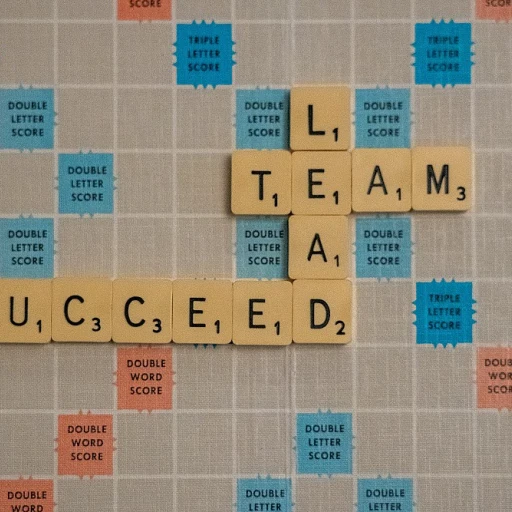Understanding Cognitive Analytic Training
Discovering the Roots of Cognitive Analytic Training
Cognitive Analytic Training (CAT) equips managers with versatile tools derived from the fusion of cognitive and analytical approaches. Foundational to this methodology is the concept of integrating cognitive therapy with elements of analytic therapy, offering a unique hybrid model beneficial in various settings.
CAT training emphasizes reflective practice, serving as both a course and a continuous learning journey. This helps managers develop a deeper understanding of their own mental processes and interpersonal dynamics. Through engaging in this form of practitioner training, managers can better address complex workplace scenarios, fostering a supportive environment not only for their team but also for themselves.
Cognitive Analytic Practitioners aim to bridge the gap between reactive management and proactive strategy. This involves understanding personality disorders in a managerial context and how these may affect team dynamics and decision-making processes. By adopting principles from CAT, managers can enhance their mental health awareness, offering supportive supervision to their teams and aligning with overarching organizational goals.
CAT training is structured to assist managers in refining their self-awareness, and it offers resources such as cognitive analytic supervision and participation in various forums. This provides a supportive network, integral for the practical application of CAT theories in real-world situations. Moreover, as the demand for innovative management strategies continues to grow, CAT's influence in mental health, particularly in supporting young people and clinical settings, is becoming increasingly recognized.
For those seeking to delve deeper into developing a well-organized approach to CAT in management, consider exploring an
effective training schedule for managers to ensure a structured and balanced learning experience.
Benefits of Cognitive Analytic Training for Managers
Key Advantages of Cognitive Analytic Training for Management
Cognitive Analytic Training (CAT) offers distinct benefits for managers seeking to enhance their skill set in today's dynamic workplace. By integrating concepts derived from cognitive and analytic disciplines, managers can significantly improve how they navigate complex situations, maintain mental health, and foster a productive work environment.
One of the primary advantages of CAT in management is its ability to enhance reflective practice. This is particularly crucial for managers dealing with challenging workplace dynamics or those who regularly engage with young people and teams. Reflective practice allows managers to critically evaluate their own behaviors and reactions, thus making informed decisions that benefit the organization.
Moreover, CAT practitioner training provides leaders with essential tools to address various emotional and psychological needs within the team. By understanding personality disorder dynamics through cognitive analytic approaches, managers can create supportive, empathetic, and healthier work environments. CAT training is not limited to those working directly in clinical settings; its principles are widely applicable across various sectors, from corporate teams to educational institutions.
The practical nature of cognitive analytic models also assists in improving mental health awareness at the workplace. Managers equipped with CAT skills can apply these in discussions, forums, and training films, effectively leading initiatives that promote employee well-being. This becomes particularly relevant as workplace mental health receives increasing attention, with many organizations advocating for management strategies that incorporate therapeutic methods like CAT.
The benefits of CAT are well-demonstrated in various case studies where management practices have seen considerable improvements. Supervisors often rely on CAT practitioners for guidance, and the ongoing support available through associations such as cognitive behavioral therapy and Orygen further facilitates learning.
In a rapidly evolving business landscape, staying ahead requires managers to embrace innovative training courses and programs. CAT not only sharpens cognitive abilities but also fortifies leaders to better support their teams, reflecting on successes from past years and adapting to future challenges. To explore more on how technology can assist in enhancing management strategies, consider
exploring AI solutions for employee policy searches.
Implementing Cognitive Analytic Training in the Workplace
The Practical Steps to Implementing Cognitive Analytic Training
Incorporating Cognitive Analytic Training (CAT) into the workplace demands a structured approach that commences with understanding the core principles of the training. As organizations aim to effectively integrate CAT into their management strategy, it's pivotal to understand the roadmap for successful implementation.
- Assessment and Planning: The first step involves assessing the current mental health and training needs of your team. Understanding the personality dynamics, role responsibilities, and existing challenges ensures that the implementation of CAT is relevant and tailored to specific organizational needs. Tools and resources from clinical psychologists can provide foundational support during this phase.
- Customized Training Course: Once the needs are identified, the next step is to design or select a training course customized for your managers. This could involve enrolling them in structured cognitive analytic training programs or offering in-house psychotherapy training. Establishing a training year as a milestone for managers can allow for an organized learning curve, where CAT practitioners support the iterative process of skill enhancement.
- Integration with Existing Models: Incorporating CAT effectively requires blending it with existing management and training models. Reflective practice here becomes imperative, providing managers with the space to assimilate cognitive analytic concepts while maintaining their routine role responsibilities.
- Ongoing Supervision and Support: Continuous supervision is key to realizing the full potential of CAT's benefits. The involvement of CAT therapists and clinical psychologists in offering supervision and guidance ensures a consistent alignment with cognitive analytic principles. Regular forums for discussion and support can help in addressing challenges and sharing best practices.
- Evaluation and Feedback: Recurrent evaluation of the training outcomes through metrics like performance enhancements and mental health improvements fosters a culture of feedback and adjustment. Incorporating feedback from young people involved or affected by management strategies can also offer insightful perspectives for continual growth.
For organizations aiming to excel in management, utilizing resources such as the
mastering the core essentials can ensure that the integration of cognitive analytic training aligns with broader organizational goals. A strategic approach enables managers to transcend traditional boundaries and embrace a more dynamic and mentally agile management style.
Case Studies: Success Stories in Management
Real-World Applications and Success Stories
Cognitive analytic training (CAT) has been making waves in management, as it systematically combines cognitive and analytic models to enhance team dynamics and leadership effectiveness. Here, we'll explore some compelling success stories where this training methodology brought significant improvements.
- Transformative Leadership in Healthcare: In a prominent healthcare institution, managers leveraged CAT to address complex personality disorders that often intersect with management challenges. By participating in a course that integrated cognitive and analytic therapy methods, leaders enhanced their reflective practice, contributing to more cohesive teams and improved mental health outcomes for their staff.
- Innovation through Improved Mental Frameworks: Within the tech industry, a focus on cognitive analytic supervision facilitated a shift in problem-solving approaches and creative thinking. Practitioners who underwent CAT practitioner training over the course of a year developed new cognitive models that fostered innovation by harnessing deeper analytical insights into team behavior.
- Boosting Team Morale in High-Stress Environments: A corporate client service center implemented CAT principles to manage stress and improve team morale. Through personalized and analytic therapy approaches, teams experienced reduced burnout and an increase in performance metrics, thanks to the CAT training that emphasized mental resilience and reflective practices.
The case studies highlight the potential of cognitive analytic training in enhancing managerial success across various fields. By focusing on mental health, analytical practice, and providing supportive supervisory mechanisms, CAT has set new standards in leadership and team management, proving its value beyond traditional training methods.
Essential Instruments to Facilitate Cognitive Analytic Training
Managers looking to enhance their skills through cognitive analytic training have access to a variety of tools and resources that support the learning process effectively. These resources serve as anchors for both foundational and advanced understanding in this complex field.
- Training Course Materials: Core materials provided during practitioner training serve as an essential backbone for CAT practitioners. These often include manuals on analytic models, training films for reflective practice, and personalized supervision schedules.
- Online Forums and Support Networks: Associations like the Association for Cognitive Analytic Therapy and other forums offer robust support communities. Engaging with these platforms encourages collective learning and problem-solving among peers and experts, especially those focusing on mental health and personality disorder areas.
- Supervision and Reflective Practice: Regular supervision with experienced CAT practitioners is instrumental in reinforcing theoretical learning. Such reflective practices ensure that trainees can translate cognitive concepts into practical application effectively.
- Clinical Workshops and Events: Workshops and events organized by clinical psychologists and therapy institutions provide opportunities to delve further into the nuances of analytic therapy. Attendance widens understanding and exposes managers to diverse clinical perspectives.
- Diverse Learning Materials: Besides standard course content, resources like personality disorder manuals and clinical psychologist strategies are beneficial for those working closely with mental health and therapy cat areas, particularly pertinent to young people.
Embedding these resources into your learning journey can transform the theoretical aspects of CAT into practical management skills over a typical training year. By leveraging such instruments, managers can aim at not just improving their cognitive understanding, but also enhancing their practical application abilities in varied work situations.
Future Trends in Cognitive Analytic Training for Management
Future Directions for Cognitive Analytic Training in Management
The realm of cognitive analytic training (CAT) is continuously evolving, offering promising opportunities for enhancements in management practices. As organizations seek innovative ways to develop leaders, they increasingly turn to CAT methodologies to support mental health and improve managerial effectiveness.
- Emerging Technologies: The integration of technology within CAT is anticipated to grow. Tools like virtual reality and AI can potentially offer immersive and personalized training experiences. With these technologies, managers might engage in interactive training films that emulate real-life scenarios, enhancing their reflective practice and decision-making skills.
- Increased Focus on Mental Health: As awareness around mental health rises, CAT will likely see more incorporation in workplace wellness programs. The therapy cat approach emphasizes understanding and addressing cognitive patterns that affect mental health, making it a valuable asset for managing stress and improving workplace productivity.
- New Models of Learning: There might be a shift towards more flexible learning models in CAT. Online courses and forums could offer managers the ability to engage with CAT at their own pace, providing support and insights through virtual supervision. This shift could democratize access to CAT, making it feasible for a broader range of managerial positions.
- Application in Young People Management: With the increasing complexity of leading young workforce teams, CAT may adapt to specifically address the management of young people. Understanding personalities and addressing potential personality disorders through cognitive analytic therapies could help managers better align their leadership styles with the dynamic needs of younger employees.
- Collaborative Networks and Support: The creation of collaborative networks, such as an association cognitive or CAT practitioner forums, could further strengthen the community of trained professionals. These networks would facilitate information sharing, support, and collective learning, driving the CAT field forward.
The forthcoming years could herald a surge in these approaches, making CAT an indispensable part of the management training landscape. Embracing these trends could help organizations cultivate more astute and empathetic leaders, ultimately leading to enhanced organizational performance and greater employee satisfaction.














